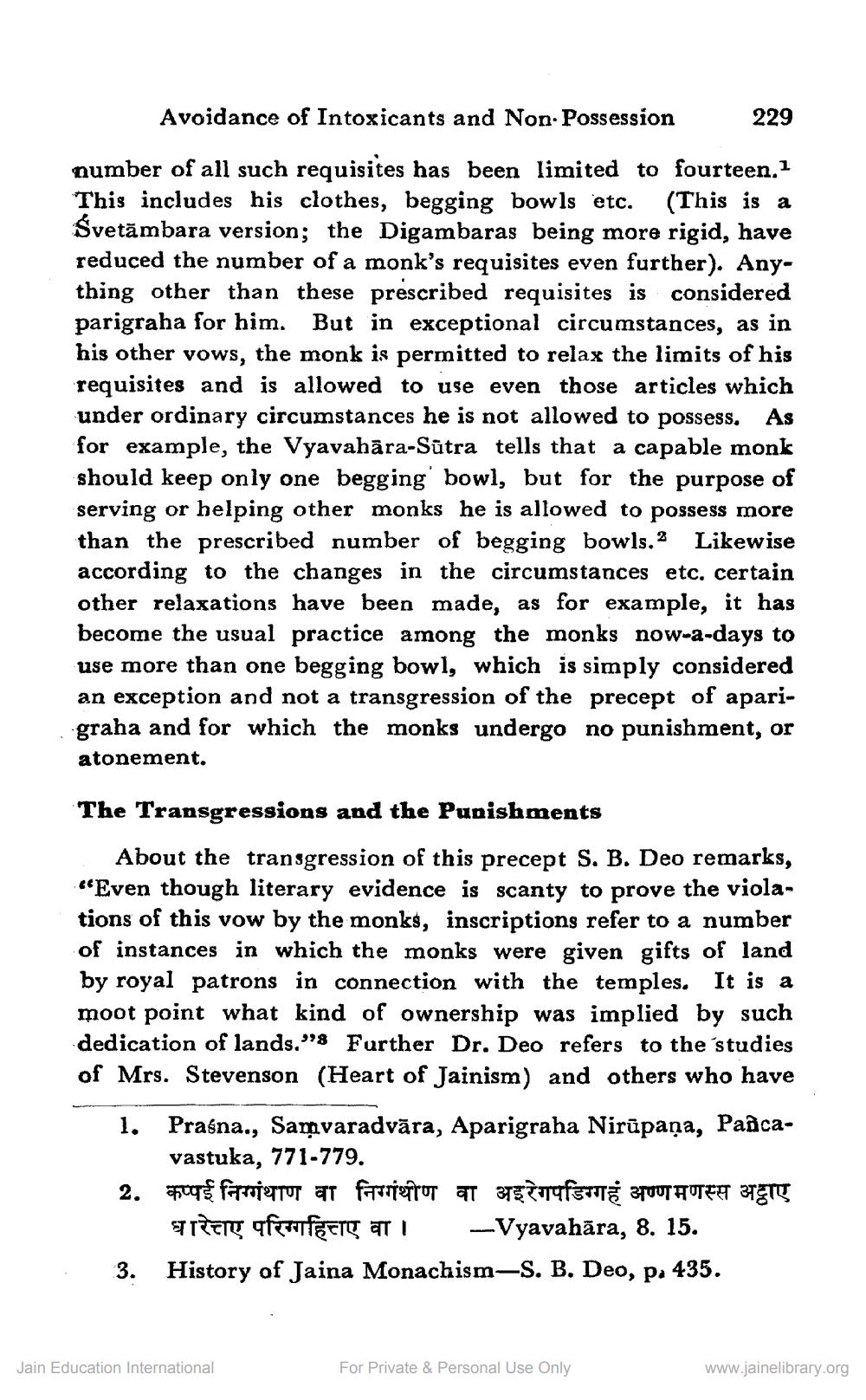________________
Avoidance of Intoxicants and Non-Possession 229 number of all such requisites has been limited to fourteen.1 This includes his clothes, begging bowls etc. (This is a Svetămbara version; the Digambaras being more rigid, have reduced the number of a monk's requisites even further). Anything other than these prescribed requisites is considered parigraha for him. But in exceptional circumstances, as in his other vows, the monk is permitted to relax the limits of his requisites and is allowed to use even those articles which under ordinary circumstances he is not allowed to possess. As for example, the Vyavahāra-Sūtra tells that a capable monk should keep only one begging' bowl, but for the purpose of serving or helping other monks he is allowed to possess more than the prescribed number of begging bowls.2 Likewise according to the changes in the circumstances etc, certain other relaxations have been made, as for example, it has become the usual practice among the monks now-a-days to use more than one begging bowl, which is simply considered an exception and not a transgression of the precept of aparigraha and for which the monks undergo no punishment, or atonement.
The Transgressions and the Punishments
About the transgression of this precept S. B. Deo remarks, "Even though literary evidence is scanty to prove the violations of this vow by the monks, inscriptions refer to a number of instances in which the monks were given gifts of land by royal patrons in connection with the temples. It is a moot point what kind of ownership was implied by such dedication of lands."8 Further Dr. Deo refers to the studies of Mrs. Stevenson (Heart of Jainism) and others who have 1. Prasna., Samvaradvāra, Aparigraha Nirūpaņa, Paaca
vastuka, 771-779. 2. कप्पई निग्गंथाण वा निग्गंथीण वा अइरेगपडिग्गहं अण्णमणस्स अट्टाए
STRETT OFFEET OTI -Vyavahāra, 8. 15. 3. History of Jaina Monachism-S. B. Deo, p. 435.
Jain Education International
For Private & Personal Use Only
www.jainelibrary.org




